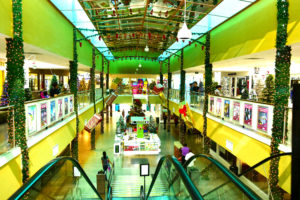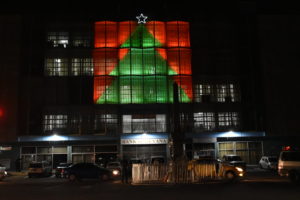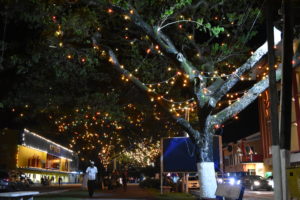 Christmas is both a sacred religious holiday and a worldwide cultural and commercial phenomenon. For two millennia, people around the world have been observing it with traditions and practices that are both religious and secular in nature.
Christmas is both a sacred religious holiday and a worldwide cultural and commercial phenomenon. For two millennia, people around the world have been observing it with traditions and practices that are both religious and secular in nature.
Christians celebrate Christmas Day as the anniversary of the birth of Jesus of Nazareth. Popular customs include exchanging gifts, decorating Christmas trees, attending church, sharing meals with family and friends and, of course, waiting for Santa Claus to arrive.
The traditional Christmas narrative, the Nativity of Jesus, delineated in the New Testament says that Jesus was born in Bethlehem, in accordance with messianic prophecies. When Joseph and Mary arrived in the city, the inn had no room and so they were offered a stable where the Christ Child was soon born, with angels proclaiming this news to shepherds who then further disseminated the information. Although the month and date of Jesus’ birth are unknown, by the early-to-mid fourth century the Western Christian Church had placed Christmas on December 25, a date that was later adopted in the East. Today, most Christians celebrate on December 25 in the Gregorian calendar, which has been adopted almost universally in the civil calendars used in countries throughout the world.
Although the month and date of Jesus’ birth are unknown, by the early-to-mid fourth century the Western Christian Church had placed Christmas on December 25, a date that was later adopted in the East. Today, most Christians celebrate on December 25 in the Gregorian calendar, which has been adopted almost universally in the civil calendars used in countries throughout the world.
However, some Eastern Christian Churches celebrate Christmas on December 25 of the older Julian calendar, which currently corresponds to January 7 in the Gregorian calendar, the day after the Western Christian Church celebrates the Epiphany. This is not a disagreement over the date of Christmas as such, but rather a preference of which calendar should be used to determine the day that is December 25.
Moreover, for Christians, the belief that God came into the world in the form of man to atone for the sins of humanity, rather than the exact birth date, is considered to be the primary purpose in celebrating Christmas.
 The celebratory customs associated in various countries with Christmas have a mix of pre-Christian, Christian, and secular themes and origins. Popular modern customs of the holiday include gift giving, completing an Advent calendar or Advent wreath, Christmas music and carolling, lighting a Christingle, viewing a Nativity play, an exchange of Christmas cards, church services, a special meal, pulling Christmas crackers and the display of various Christmas decorations, including Christmas trees, Christmas lights, nativity scenes, garlands, wreaths, mistletoe, and holly.
The celebratory customs associated in various countries with Christmas have a mix of pre-Christian, Christian, and secular themes and origins. Popular modern customs of the holiday include gift giving, completing an Advent calendar or Advent wreath, Christmas music and carolling, lighting a Christingle, viewing a Nativity play, an exchange of Christmas cards, church services, a special meal, pulling Christmas crackers and the display of various Christmas decorations, including Christmas trees, Christmas lights, nativity scenes, garlands, wreaths, mistletoe, and holly.
In addition, several closely related and often interchangeable figures, known as Santa Claus, Father Christmas, Saint Nicholas, and Christkind, are associated with bringing gifts to children during the Christmas season and have their own body of traditions and lore. Because gift-giving and many other aspects of the Christmas festival involve heightened economic activity, the holiday has become a significant event and a key sales period for retailers and businesses. The economic impact of Christmas has grown steadily over the past few centuries in many regions of the world. In Guyana, Christmas is the busiest time of the year for all businesses since people would do remodel and redecorate their entire homes. It is a time when the furniture stores are buzzing with activities and the pavements are filled to capacity with roadside vendors as well as shoppers looking for a quick bargain.
In Guyana, Christmas is the busiest time of the year for all businesses since people would do remodel and redecorate their entire homes. It is a time when the furniture stores are buzzing with activities and the pavements are filled to capacity with roadside vendors as well as shoppers looking for a quick bargain.
Christmas in Guyana means new everything for most people. It means lavish spending. It means food for days but most importantly it means a time where value is placed on family and helping those in need.
(Times Sunday Magazine)



